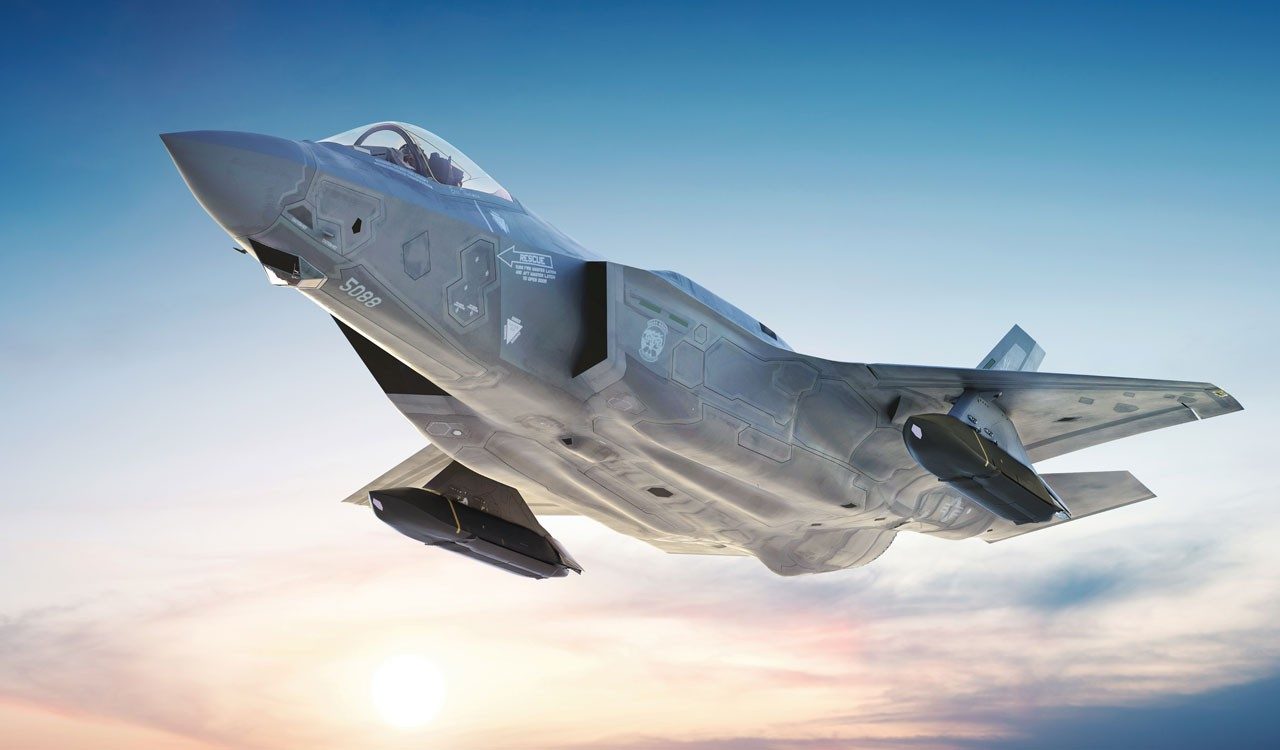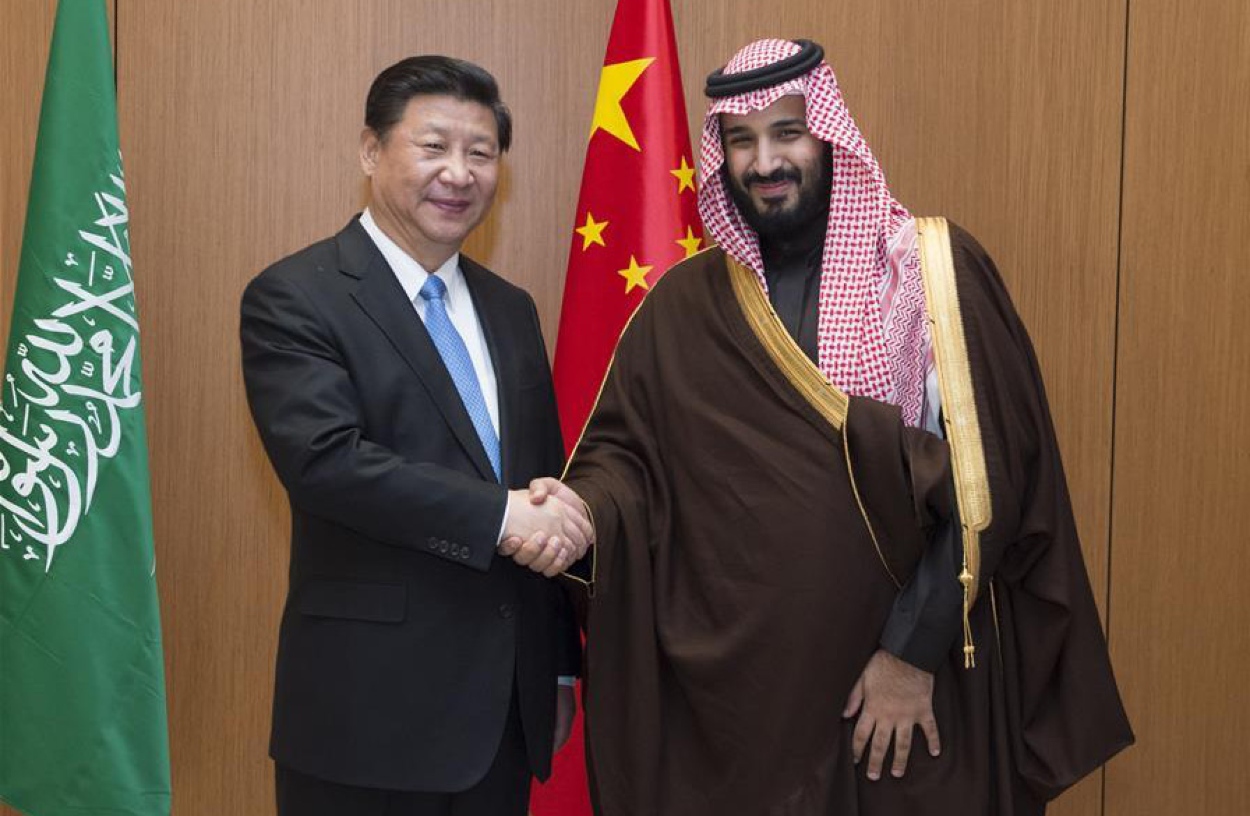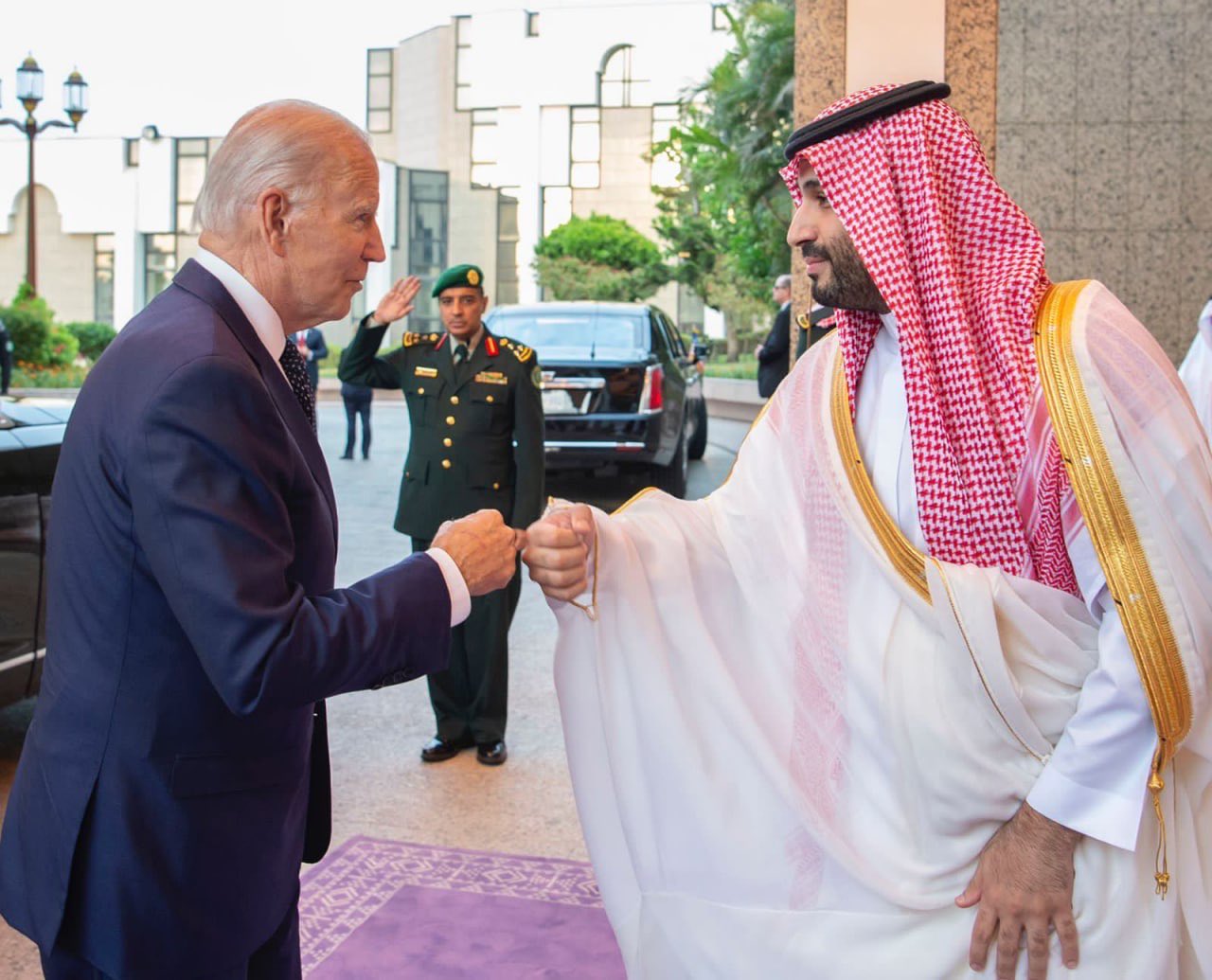Alarmed by China’s expanding influence in the Persian Gulf, the United States has been trying to seal a high-value defense deal with Saudi Arabia for several months. Finally, an agreement is around the corner and may involve the sale of the F-35 Lightning II jets.
The White House announced on May 20 that substantial progress had happened in the discussions between the US national security adviser and the Saudis over the weekend, bringing the two countries closer to a final agreement on a bilateral defense accord.
John Kirby, the White House’s spokesman for national security, stated that the two sides were “closer than we’ve ever been” on a bilateral agreement that is “near final.”
Though Kirby did not lay out the specifics of a potential agreement, here is what we know: if signed, a deal would lead to a formal guarantee from the US to defend the Saudi kingdom in exchange for guarantees that Riyadh would limit or suspend arms purchases from China.
According to an American official, part of the agreement includes discussions about the United States supplying F-35 fighter jets and other weapons to Saudi Arabia. At this point, the sale of the fifth-generation aircraft to Riyadh has not been promised, but Pentagon officials said that it was important that the F-35s be discussed since Riyadh has long wanted the stealthy fighter jet.
So far, a major impediment in the sale of F-35 jets to Saudi Arabia has been Washington’s obligation towards Israel. A long-standing agreement between the US and Israel stipulates that US weapons supplied to Israel are “superior in capability” compared to those sold to Israel’s neighbors. So, the US weapons sales in the Middle Eastern region cannot jeopardize Israel’s “qualitative military edge.”
With the 5th-generation fighter jet of reach, several Gulf countries, including Saudi Arabia, have been exploring alternate options. Military watchers reckon that the Saudi kingdom could likely go for the purchase of the French Dassault Rafale or the Eurofighter Typhoon due to the unavailability of the F-35.

Analysts have observed that approving a sale of F-35s to Saudi Arabia could convince the state and the region about the US commitment to its security. Additionally, the sale would not only ensure regional deterrence but would also ensure the long-term dependency of Saudi Arabia on the United States for training, maintenance, logistics, and interoperability.
However, no assurances were made due to Israel. Maintaining Tel Aviv’s dominant air power in the Middle East is essential, and since several countries in the region have acquired cutting-edge 4+ generation fighter jets, Israel’s superiority lies in its exclusivity with the F-35s.
Despite that, the US has not closed the lid on the talks as it is aware that a defense deal is imperative to counter China’s growing influence in the region, and Saudi interest in F-35 has remained constant for years.
US Wants To Drive China Away From Saudi Arabia
Chinese arms and capital increasing in the Middle East region, has alarmed the US.
China’s footprint in the Middle East has expanded rapidly since the announcement of its Belt and Road Initiative (BRI) in 2013. As the largest trading partner and foreign investor for several countries in the region, China is actively seeking economic investment deals, particularly in infrastructure and connectivity projects.
Saudi Arabia has also bought arms from China. In 2022, Chinese media said Saudi Arabia had inked $4 billion worth of new arms deals with China. While the deals included armed drones, ballistic missiles, and anti-drone laser-based systems, the Saudis did not buy expensive assets like fighter jets.
The military cooperation between Beijing and Riyadh has continued to grow. After a hiatus of four years, China and Saudi Arabia conducted their joint naval drill in October 2023, aimed at simulating actions focused on overseas maritime counterterrorism operations.

China’s enormous investment and arms sales to Saudi Arabia have also been accompanied by an expanding diplomatic influence, which was on full display when Beijing managed to broker a detente between Saudi Arabia and Iran last year.
At that time, several analysts based in the West cautioned that Beijing was sweeping into the region due to the vacuum left by the United States due to differences in the Kingdom.
The ties between the two traditional allies touched the nadir over the killing of journalist Jamal Khashoggi and later after the Ukraine War and Riyadh’s stance on the quantity of oil production. China has continued to see the strain in Saudi ties with the US as a window.
However, China’s burgeoning presence in the Middle East, which has traditionally been a US bastion, has rattled the Pentagon and led to a change of heart. Hence, talks between the US and Saudi Arabia have restarted.
Is A Deal Imminent?
Speculation is rife that the defense pact would be short of a NATO-style agreement. Formal defense agreements are not typical for the US with countries outside NATO. However, the US maintains strong military ties with other key allies.
People familiar with the situation also think sharing cutting-edge technology, like artificial intelligence, with Riyadh will be part of the US-Saudi security deal.
A Bloomberg report said that Crown Prince Mohammed bin Salman would “limit Chinese technology from his nation’s most sensitive networks in exchange for major US investments in artificial intelligence and quantum computing and get American help to build out its civilian nuclear program.”
As per some reports, the Biden administration could be offering the Saudis a strategic nuclear deal to support a civilian nuclear program. However, the US might face internal opposition to such a deal.

A US official was recently reported saying, “We are very close to an understanding of the major elements between us…We, of course, will also have to then work on pieces that relate to the Israelis and Palestinians, which is a critical component of any potential normalization deal,” the official said.
Last year, the US made concerted attempts at brokering peace between Saudi Arabia and Israel. However, that fell flat after Israel declared war on Gaza in October.
While there is optimism that a defense deal will be signed between the US and Saudi Arabia soon, skeptics believe that the demand for normalization of ties with Israel may be a major hurdle. Saudi Arabia has demanded that Israel’s assault against Hamas halt immediately to establish a durable ceasefire and make significant efforts toward the creation of an independent Palestinian state.
Kirby stated it was uncertain when a deal between the United States and Saudi Arabia would be reached. However, the administration remains optimistic with talks finally on track.
- Contact the author at sakshi.tiwari9555 (at) gmail.com
- Follow EurAsian Times on Google News





